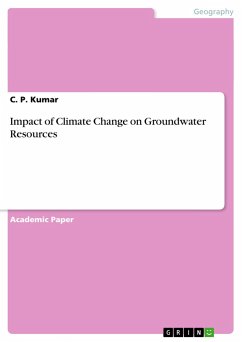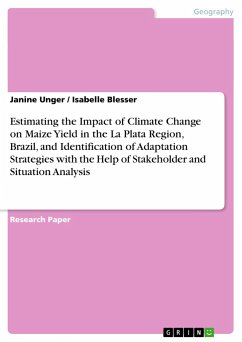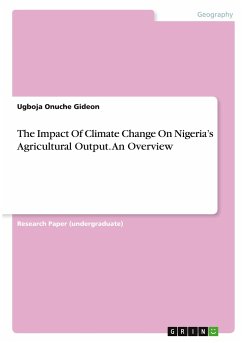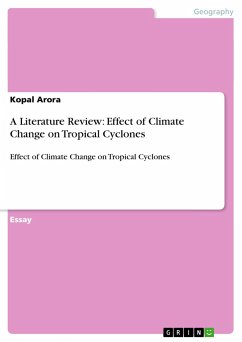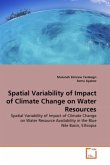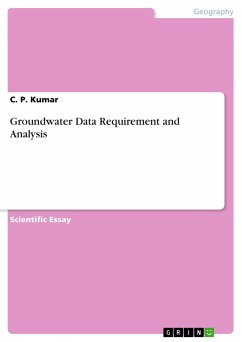Academic Paper from the year 2014 in the subject Geography / Earth Science - Meteorology, Aeronomy, Climatology, , language: English, abstract: Climate change poses uncertainties to the supply and management of water resources. The Intergovernmental Panel on Climate Change (IPCC) estimates that the global mean surface temperature has increased 0.6 ± 0.2 oC since 1861, and predicts an increase of 2 to 4 oC over the next 100 years. Temperature increases also affect the hydrologic cycle by directly increasing evaporation of available surface water and vegetation transpiration. Consequently, these changes can influence precipitation amounts, timings and intensity rates, and indirectly impact the flux and storage of water in surface and subsurface reservoirs (i.e., lakes, soil moisture, groundwater). In addition, there may be other associated impacts, such as sea water intrusion, water quality deterioration, potable water shortage, etc.While climate change affects surface water resources directly through changes in the major long-term climate variables such as air temperature, precipitation, and evapotranspiration, the relationship between the changing climate variables and groundwater is more complicated and poorly understood. The greater variability in rainfall could mean more frequent and prolonged periods of high or low groundwater levels, and saline intrusion in coastal aquifers due to sea level rise and resource reduction. Groundwater resources are related to climate change through the direct interaction with surface water resources, such as lakes and rivers, and indirectly through the recharge process. The direct effect of climate change on groundwater resources depends upon the change in the volume and distribution of groundwater recharge. Therefore, quantifying the impact of climate change on groundwater resources requires not only reliable forecasting of changes in the major climatic variables, but also accurate estimation of groundwater recharge.This article presents the likely impact of climate change on groundwater resources, climate change scenario for groundwater in India, status of research studies carried out at national and international level, and methodology to assess the impact of climate change on groundwater resources.
Hinweis: Dieser Artikel kann nur an eine deutsche Lieferadresse ausgeliefert werden.
Hinweis: Dieser Artikel kann nur an eine deutsche Lieferadresse ausgeliefert werden.

